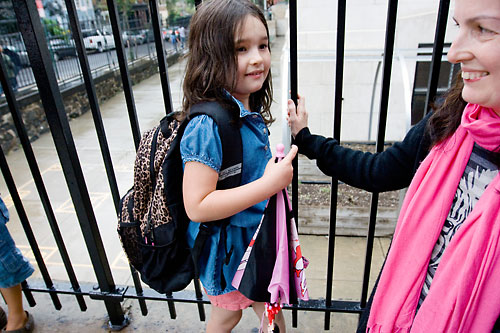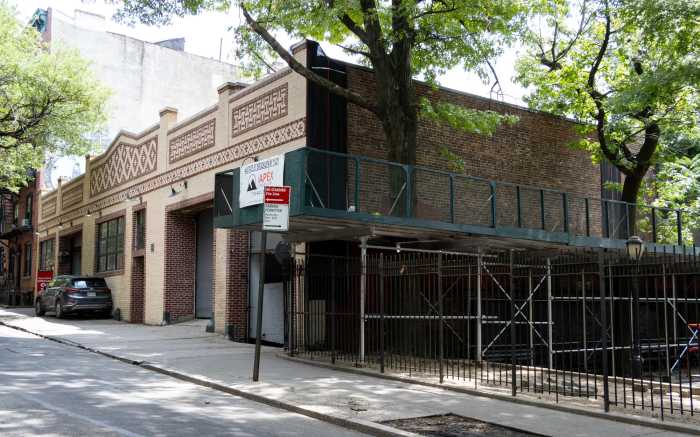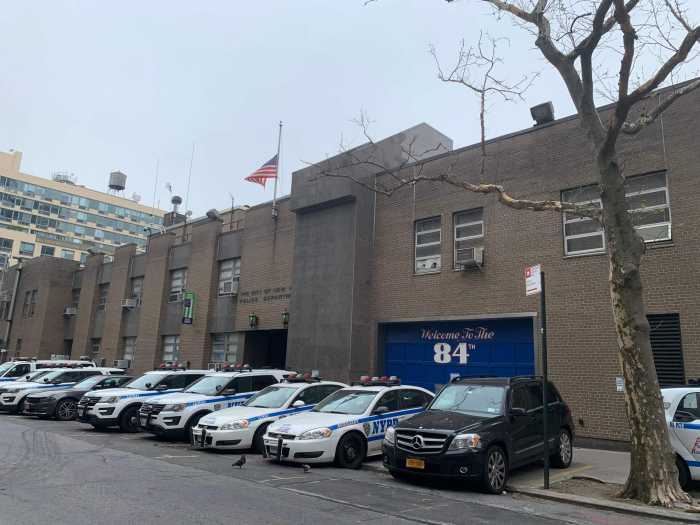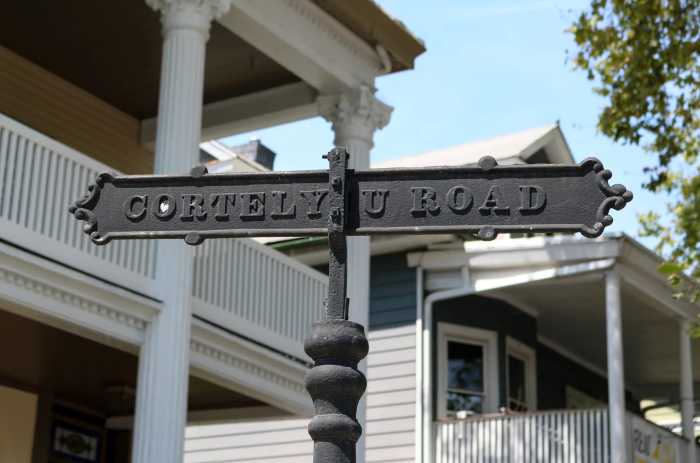The principal of Brooklyn Heights’ popular PS 8 spent the week calming parents’ nerves that the elementary school had slipped backwards now that the city handed the school an F in its annual report cards.
“PS 8 is not a failing school, far from it,” Principal Seth Phillips wrote in a letter to parents last Friday, three days before the city confirmed the failing grade.
“The hard work of our teachers, students and families make PS 8 an excellent example of how a school can spark the imagination of a child while providing a solid, well-rounded education, which goes beyond report cards and standardized testing,” Phillips said.
The new report card system, unveiled last fall, grades a school based on its students’ performance and progress on tests year to year, and from one year to the next. So if a student received a 100 on the test last year but a 98 on the test this year, the school’s performance grade could suffer.
“Two years ago, we had five students who scored perfect scores in third grade. Unless those five students scored a perfect score last year, they were not considered achieving a year’s growth,” Phillips explained in his letter.
The progress grade measures each school’s “improvement” from year to year as compared comparable schools elsewhere in the city. The Education Department has not released a list of schools that get compared to each other, much to the frustration of parents and educators alike.
“The formula for establishing peer groups is so confusing that I can honestly make no sense of it,” Phillips said. Last year, Phillips said he evaluated schools to create his own “peer group,” but could only find six “truly similar” schools comparable in size, ethnic and demographic makeup, English-as-a-second-language programs, and special education. The city says there are 40 similar schools.
The system also grades schools on its environment, including student attendance and the results of annual parent, teacher, and student surveys about schools’ learning environments, the city said.
Frustrated parents were buzzing about the news all week at the Hicks Street school.
“[The grade] upsets me because it’s a wonderful school, and my children are getting exactly what they — and I — want and need,” said parent Lisa Kopell, who has two children at PS 8. “They’re happy and they’re in a loving environment. I won’t let this news bother me at all.”
Parent Todd Glass, who has a son in first grade, said parents he’s spoken to are aghast.
“The people who come here everyday know that it’s not a failing school and that, if anything, this is a model for how to turn around a failing school,” Glass said. “The really unfortunate thing about this is the distraction it can cause [to the school’s daily functions].”
Celia Caro said the grades send the wrong message to kids, including her 6-year-old daughter, Colette.
“I think that the way the Department of Education gives grades is questionable,” Caro said. “What kind of message is that to give children? If you don’t keep getting higher grades, you will fail? That’s such a discouraging message.”
A Department of Education spokesman said the agency stands behind its grades, despite the irony of an appearance by Chancellor Joel Klein at the school in July, when he praised PS 8 as a “success.”
Not anymore, apparently.
“The school is sought after by many parents, but its scores also indicate that the community has significant concerns about its learning environment,” Education spokesman David Cantor said in a statement. “The basic responsibility of a school is to enable its students to master standards and improve on their performance. Although some students performed well, PS 8 largely failed at these tasks last year.”
At the other end of the spectrum, a school in Clinton Hill, PS 270, rose from an F grade last year to an A this year, and placed sixth overall in the city’s school ranking. Education officials cited big reading and math gains among the lowest-performers.


























